Parliamentary News
It’s a little unsettling that informing you of the cabinet and leadership changes is becoming a regular feature. After our last update there were more changes. So here we go again…!
Our new education ministerial team, supporting PM Rishi Sunak, are:
- Gillian Keegan – SoS for Education
- Nick Gibb – Minister of State for Schools (DfE)
- Robert Halfon – Minister of State Minister for Skills, Apprenticeships and Higher Education – (DfE)
- Claire Coutinho – Parliamentary Under-Secretary of State – Minister for Children, Families and Wellbeing (DfE)
- And Baroness Barran survives yet another reshuffle and has an interesting role – Parliamentary Under-Secretary of State for the School System and Student Finance. The Student Finance part is an addition, and it is interesting that this is not in the Halfon role.
- Baroness Barran will also continue as the Lords spokesperson for Education.
So we knew Kit Malthouse was out but also goodbye to Kelly Tolhurst, Andrea Jenkyns and Jonathan Gullis.
Robert Halfon’s brief: Minister of State (Minister for Skills, Apprenticeships and Higher Education)
- overall strategy for post-16 technical education
- T Levels and transition programme
- qualifications reviews (levels 3 and below)
- higher technical education (levels 4 and 5)
- apprenticeships and traineeships
- further education workforce and funding
- Institutes of Technology
- local skills improvement plans and Local Skills Improvement Fund
- adult education, including basic skills, the National Skills Fund and the UK Shared Prosperity Fund
- careers education, information and guidance including the Careers and Enterprise Company
- technical education in specialist schools
- relationship with the Office for Students
- higher education quality and reform
- Lifelong Loan Entitlement
- student experience and widening participation in higher education
- funding for education and training, provision and outcomes for 16- to 19-year-olds
- college governance and accountability
- intervention and financial oversight of further education colleges
- reducing the number of young people who are not in education, employment or training
- international education strategy and the Turing Scheme
Halfon is well known for his leadership of the Education select committee and was previously the skills minister (2016/17) until he stepped down. He is also scheduled to provide evidence to the Lords Science and Technology Committee next Tuesday for the People and skills in UK STEM inquiry. Halfon’s promotion also means the Education select committee chair is now vacant. We’ll keep an eye out for news on who will fill this powerful and high profile committee position. Nominations close on 15th November.
Their SpAds (special advisers):
- Lawrence Abel has been appointed as Special Adviser to the DfE team. He previously served as senior policy and communications adviser to Gillian Keegan whilst she was at the FCDO and as DfE Minister. Previous to this Abel was Keegan’s Parliamentary Assistant.
- Currently ex-No 10 policy adviser Rory Gribbell remains in post as a DfE SpAd (appointed two months ago under Kit Malthouse).
- It’s speculated that Abel will hold the media and comms SpAD brief while Gribbell will focus on policy.
Science Minister: George Freeman is back as Minister of State for Science, Technology and Innovation (he held this role under Boris Johnson). Currently Nusrat Ghani also remains as Minister of State for Science and Investment Security. However, Politico suggest only Freeman will retain the science brief once the dust settles:
Both George Freeman and Ghani tweeted that they had been appointed science minister last week — but after some confusion, the PM and the BEIS boss Grant Shapps confirmed the job was Freeman’s. The two issues are said to have left Ghani, who had been appointed science minister under Truss, feeling bruised. Since she had moved in some weeks ago during the previous administration, a compromise was to let her keep the science minister office rather than move all her things. The knock on effect … is that a load of civil servants have to swap offices instead.
What does it all mean for Education?
There’s an interesting article in The Times about the Education team: Education could be Rishi Sunak’s big revolution, snippets below. Education is a crucial topic at every election so Rishi would be wise to use education to settle the recent turbulent political waters and demonstrate both progress and gain voter’s hearts. Snippets:
- Gillian Keegan, the new secretary of state — ridiculously, the fifth this year — is a rarity in the Sunak cabinet: she hasn’t sat around that table before. Her appointment suggests a desire to do something different with the department. She left school at 16, became an apprentice at a car plant and went on to have an extremely successful business career in the technology sector. She is the first degree-level apprentice to enter parliament. In the struggle for parity of esteem between academic and technical education, having a secretary of state who went down this route is significant
- Alongside her are Nick Gibb, returning as schools minister for a third time, and Robert Halfon, the former chairman of the education select committee and a champion of technical education. The other junior minister is Claire Coutinho, who was Sunak’s adviser before becoming an MP. She shares his view that all children should do maths until the age of 18 and is a champion of the £500 million numeracy programme he introduced as chancellor to address the fact that one in five adults lack the numeracy skills expected of a nine-year-old.
- It is a rare team in that every minister has deeply held views on their assigned subject. The mix of characters — Gibb an advocate of a traditional academic education and Halfon of vocational education — has led some to wonder if the focus will be on skills or knowledge. But this may miss the point. Sunak’s view is that education goes way beyond your school years and that the country must do more to adjust to that new reality.
- Sunak… regarded UK universities as world class, producing a sizeable number of graduates. The great British problem, he thought, was believing education is something that ends when you enter the workforce.
- The closest Sunak has come to a personal manifesto is his Mais Lecture back in February, when he focused on adult skills… To improve the skills of the 2030 workforce means training today’s workers now… Any attempt to boost skills by focusing solely on trainees, Sunak argued, will have a limited impact. He has long bemoaned the fact that British employers spend barely half the European average on training their workers. Only one in five British workers aged 25 to 64 has a technical qualification, a third lower than the OECD average. As chancellor, Sunak used to talk about using the tax system to turn this around. The lecture was overshadowed by Russia’s invasion of Ukraine, which occurred on the same day, but this may well prove a significant focus of his premiership.
- As well as a renewed push on apprenticeships, Sunak wants his education ministers to extend their reach into the workforce. The need for more highly skilled workers is all the greater given that technology is expected to play a far greater role in the economy.
- The need for in-work training doesn’t carry the same resonance as the familiar arguments over academic selection, the school curriculum and the balance between knowledge and skills. But getting skills right could have a more immediate impact on growth and productivity…
ICYMI: other key ministers:
- Grant Shapps – Secretary of State for Business, Energy and Industrial Strategy (was
Jacob Rees-Mogg)
- Steve Barclay – Secretary of State for Health and Social Care (was Therese Coffey)
- Michael Gove – Secretary of State for Levelling Up, Housing and Communities (and Minister for Intergovernmental Relations) (was Simon Clarke)
- Kemi Badenoch – Secretary of State for International Trade; President of the Board of Trade; Minister for Women and Equalities (retained post during leadership change)
- Therese Coffey – Secretary of State for Environment, Food and Rural Affairs (was Ranil Jayawardena)
- Michelle Donelan – Secretary of State for Digital, Culture, Media and Sport (retained post during leadership change)
- And he’s back as a Minster of State (Minister without Portfolio) including attending Cabinet: Gavin Williamson (although at the time of writing there are questions about how long he will stay in post).
How many did you get on your Cabinet bingo card this time?
Cabinet Committees: National Science and Technology Council
The latest list of Cabinet Committees is here. Notable is that it now includes the National Science and Technology Council (NSTC), again. Slightly confusing – this is not the same body as the existing Council for Science and Technology. The cabinet committee NSTC was one of Boris’ innovations (or perhaps that of his adviser of the time Dominic Cummings) to achieve their Britain as a ‘science superpower’ ambition alongside the new Office for Science and Technology Strategy which was headed up by Chief Scientific Adviser Sir Patrick Vallance. The NSTC was disbanded by Truss during the reduction in the volume of cabinet-level bodies. You’ll recall us highlighting the backlash at this decision from the science sector in a recent policy update. With the Lords Science and Technology Committee requesting the committee be reconvened and a science minister (attending Cabinet) to be appointed. The Truss administration acquiesced announcing the establishment of a “new” National Science and Technology Council – the “new” part being that it would be chaired by the Chancellor of the Exchequer, not the PM as previously, with the Chancellor of the Duchy of Lancaster serving as deputy.
However, the reconvened NSTC will return to previous arrangements with the following attendees:
- Prime Minister (Chair): Rishi Sunak
- Deputy Prime Minister, Lord Chancellor, and Secretary of State for Justice: Dominic Raab
- Chancellor of the Exchequer: Jeremy Hunt
- Secretary of State for Foreign, Commonwealth and Development Affairs: James Cleverley
- Secretary of State for the Home Department: Suella Braverman
- Secretary of State for Defence: Ben Wallace
- Chancellor of the Duchy of Lancaster (Deputy Chair): Oliver Dowden
- Secretary of State for Business, Energy and Industrial Strategy: Grant Shapps
- Secretary of State for International Trade, and President of the Board of Trade, and Minister for Women and Equalities: Kemi Badenoch
- Secretary of State for Education: Gillian Keegan
- Secretary of State for Digital, Culture, Media and Sport: Michelle Donelan
- Minister for Science, Research and Innovation: George Freeman
International Students
International students haven’t been far from the news since then Home Secretary, Suella Braverman, made unwelcoming comments about international students at the Conservative Party conference. She suggested that some students were bringing large numbers of dependents with them insinuating this was a backdoor route to increased immigration. Of course, only doctoral students are permitted to bring family members with them. However, the media has been abuzz and the HE policy organisations have regularly espoused the benefits of international students for education and economy alike.
Since Rishi announced his new ministerial education line up there has been a calmer Government rhetoric in relation to international students. Most notably Robert Halfon has been responding to parliamentary questions making it clear that international students are valued. This doesn’t mean the tough immigration stance has disappeared, particularly among some sections of the party. However, for now, Government spin has been gentler.
Meanwhile Chris Skidmore (former Universities minister and co-chair of the University APPG) will launch a new International HE Commission next Monday (14 November). The full details are available through the tabs on the link however the Commission intend to seek to develop a new ‘International Education Strategy 2.0’ to be submitted to the Department of Education as a sector-wide plan for the future. You may recall that Chris launched the first UK International Education Strategy when he was the Minister in 2019.
We have a lot of information but not the full detail. For example the commissioners are expected to be announced late November. We have a timeline for development of the new strategy but, of course, we don’t know what the strategy will say. The Commission will begin running evidence sessions in mid-December and intend to publish their full report in late Spring 2023. This would coincide with the annual update for the Government’s strategy.
Below follow the Commission’s focus questions. There’s certainly some key content the sector will want to follow (and perhaps influence) during the course of the Commission’s work.
The Commission will seek to address multiple opportunities and challenges that international education and future student pathways including:
- What should a future student number target be set at, given the broader policy and economic objectives of the UK?
- What are the future target countries that the U.K. should be working with in order to establish or expand future international student pathways? How do these link to international research collaboration and knowledge transfer?
- How can we ensure that universities do not become over dependent on specific countries for recruitment? What does a sustainable recruitment strategy look like?
- How should local regions develop tailored local international education strategies and plans to reflect local strengths and priorities?
- What should a future visa offering for international students look like?
- How can the U.K. continue to be competitive in its international offer to students, recognising that other countries such as Canada, Australia and the US will also seek to attract students?
- How can we ensure international students are fully integrated on campus by taking an inclusive approach to international education? How do we ensure that the benefits for domestic students are realised?
- How can we prioritise student welfare and success so that international students have the best possible experience of life in the U.K.?
- How can we ensure student numbers are matched with the necessary accommodation and support services?
THE have coverage of the Commission: Keeping up – The UK needs a new international education strategy to provide a “clear vision” for the sector, according to former universities minister Chris Skidmore.
Parliamentary Questions on international students: Discussions with the Home Secretary on the number of international students at UK universities.
Answered (excerpt) By Robert Halfon: The department remains committed to and continues to work towards the ambition in the International Education Strategy, published in 2019 and updated in 2021 and 2022, to host at least 600,000 international students in the UK per year, by 2030… Attracting the brightest students from around the world is good for our universities, delivering growth at home as well as supporting the creation of more university places for UK students. This remains a priority for the department.
Research
Select Committee session: Doctoral students and graduates – opportunities and challenges: The Lords Science and Technology Committee ran sessions focusing on people and skills in UK science, technology, engineering and mathematics (STEM). This included a focus on PhD students and graduates, particularly their main opportunities and challenges.
Main challenges: Professor Julia Buckingham CBE: the biggest problem was the insecurity posed by fixed term contracts, she stated she believed that all other problems stemmed from that. That fixed term contracts were not good for individuals or for their research, which required longer periods of time.
Claudia Sarrico answered that the number of doctoral students had been increasing a lot and in many countries they simply cannot stay in academia. Still, there was evidence in many countries that PhD were not as attractive as they used to be for the most talented students.
Precariousness: Viscount Hanworth (Lab) asked what were the main factors that led to a precariousness of PhD in the UK.
Sarrico: The danger was that, the more PhD’s were becoming popular and common, the less they were attractive to the most talented students. There was evidence in France and Japan that the best students were completing Masters but not proceeding to PhDs. Finally, Sarrico said that the quality was also decreasing in PhD’s which was a natural consequence of the fact that it was not the best students that were studying for this degree.
Government’s strategy: Baroness Manningham-Buller (CB) asked if the witnesses were familiar with the Government’s R&D talent strategy.
Buckingham confirmed familiar and replied that in the sector there was a strong feeling that research culture had to be improved. She thought there was a ministerial group looking at the recommendations regarding how the strategy could be implemented.
Sarrico added that it was not about offering long-term contracts to everybody but rather about improving working conditions for everybody and about offering more transparent and clear career prospects.
Making research attractive: Lord Holmes (Con) asked what the Government should do to ensure that the widest group was attracted to undertake and engage in research.
Buckingham replied that there was need for more cross-fertilisation between industry and the private sector and academia. There were already examples of how things had improved in recent years but it was critical to work more on this.
Sarrico agreed and added that socio-economic background also influenced this issue. She also mentioned that there were challenges regarding transparency in recruitment when it came to parts of the private sector
Careers outside academia: Lord Winston (Lab) asked if current graduates were ready for highly skilled careers outside academia. Buckingham: No, she did not think that enough was being done to try prepare students for a career outside academia.
Sarrico said that many countries were doing industrial PhD’s or internships in the public sector in order to encourage PhD students to join careers outside academia. The key was to try to provide a wide range of experiences doctoral and post-doctoral training so that people experience different possibilities.
New research commercialisation unit
The Government launched the “first of its kind” government unit for commercialising research – the Government Office for Technology Transfer (GOTT). The intention is for the new unit to support the way the government manages and commercialises the (estimated) £106 billion of ‘knowledge assets’ including intellectual property, software and data. GOTT will be led by Dr Alison Campbell (BEIS) who has a cross-government mandate to supercharge the identification, development and exploitation of public sector knowledge assets and to encourage the public sector to be more innovative and entrepreneurial in how it manages its own assets.
Knowledge assets include know-how, data, brands, business processes, expert resources and technology. Technology transfer is about sharing these assets with other organisations to stimulate innovation and the development of new products, processes and services and the creation of new commercial ventures. You can read more here.
Quick News
- Free-conomics: Conservative former science minister George Freeman has warned that cuts to UK research spending, including for association to the EU’s Horizon Europe, will remain a risk if the government “ploughs on with unfunded tax cuts”, despite securing Treasury commitment not to cut the science budget. (THE)
- The Russell Group calls on Government to prioritise science and innovation-led growth ahead of medium-term fiscal plan.
- The Higher Education Policy Institute has published a report on research leadership
Parliamentary Questions:
NSS
The OfS have announced the results of the latest consultation on the NSS including plans for changes to the questionnaire for 2023. The analysis of responses to the consultation is here.. The guidance and the final questionnaire are here.
To reduce the work expected of providers, it has been agreed to continue with the principle that providers in England are not required to promote the 2023 survey to their students
The timetable for NSS 2023 is:
- All participating providers are asked to review, and where necessary update, their relevant NSS provider contact details by 28 November 2022
- All participating providers should also submit their completed ‘My survey options’ form by 28 November 2022 through the NSS extranet. This form asks for providers’ preferences for their survey start week and optional questions, and details of any prize draws
- All providers should populate their NSS 2023 sample templates with the requested contact details for all students on their target list; this is a list of all students eligible for NSS 2023, based on the 2021-22 student data. Details should be supplied by 28 November 2022 via the ‘Upload sample data’ section of the NSS extranet. Any proposed additions to or removals from the target list should follow the process set out by Ipsos, starting in mid-December
- The NSS will launch on 11 January 2023
- Fieldwork will take place between 11 January and 30 April 2023 and will be run by Ipsos
- OfS and UK funding bodies will issue a publication in spring 2023 detailing the plans for NSS 2023 results publication
- Results will be published on the OfS website in summer 2023
- Detailed results will be supplied to individual providers through the NSS results portal provided by Texuna Technologies.
- NSS results at course level will be published on the Discover Uni website
There is a Wonkhe article here which expresses some frustration about the power of the consultation. We share this view except we cannot understand why 90% of respondents wanted to keep question 27. Not having it means everyone will have to focus on the detail, which is where the NSS adds value.
- For example – around ninety per cent of respondents were against the removal of the summative question (current Q27) in England. The justification for removing it is simply that OfS do not use the question within current regulatory approaches. And that’s it. If you want to compare across nations, you’ll need to use some kind of agglomeration of the other questions.
- A majority of respondents did not see the value in the freedom of expression question – we get an “issue raised by stakeholders” justification without any indication of who those stakeholders might be, or whether this question actually addressed the issues that stakeholders raised.
- On this, one curiosity is that apparently some students saw freedom of expression as “essential to a sense of inclusion and belonging”. This issue didn’t come up in our recent research, but never mind. You’d think a specific question on inclusion and belonging may be of more use – but the current question 21 (“I feel part of a community of staff and students”) is being removed, with the justification that apparently some students didn’t understand it well enough and it wasn’t really about belonging and inclusion anyway.
Blended learning
Following the publication of revised conditions of relating to the quality of courses which came into force on 1 May 2022, the OfS announced a review of blended learning in higher education which was published in October.
It is worth a read, for the examples included:
Complying with condition B1: Condition B1 states that a high quality academic experience includes ensuring that B1.3.a each higher education course is up-to-date… B1.3.c each higher education course is coherent B1.3.d each higher education course is effectively delivered B1.3.e each higher education course, as appropriate to the subject matter of the course, requires students to develop relevant skills.
We would be likely to have compliance concerns in relation to condition B1, if a provider’s blended learning approach:
- Uses lecture recordings that are no longer up-to-date when re-used, or are not appropriately informed by subject matter developments, research, industrial and professional developments, or developments in teaching and learning.
- Does not facilitate feedback for students that is appropriate to the content of their course, such as where dialogue and immediate feedback is required for course content to be effectively delivered.
- Does not foster collaborative learning among students registered on a course, which may indicate the course is not being effectively delivered.
- Does not consider changing expectations for students’ digital skills in related disciplines or industries, if this means that a course is no longer up-to-date, or that a course does not require students to develop relevant skills, in a manner appropriate to the subject matter and level of the course.
- Does not require students to develop practical skills in a manner appropriate to the subject matter and level of the course.
- Is driven by an arbitrary fixed blend ratio for a course, rather than using the most appropriate delivery method for the subject material. If decisions about the delivery method (for example: online or in-person) are not being made for sound pedagogical reasons, this may indicate that the course is not being effectively delivered.
- Is driven by limitations in the supply of physical learning resources, including physical locations, which may indicate that a course is not coherent or effectively delivered, as decisions are not being made for sound pedagogical reasons.
- Is delivered in a way that results in low attendance and engagement that may mean there is an inappropriate balance between delivery methods or between directed and independent work that indicate that the course is not effectively delivered.
- Is confusing or difficult to manage for students due to insufficient coordination across modules on a course, meaning there is not an appropriate balance between delivery methods, leading to a course not being effectively delivered. j. Contains a volume of recorded online lectures and other digital learning resources that is too high for students to engage with effectively and adversely affects their ability to participate fully in their course. This may indicate that a course is not being effectively delivered.
- Is not communicated effectively to current or prospective students in terms of the pattern of blended delivery, which may suggest that a course is not coherent or being effectively delivered.
Complying with condition B2: Condition B2 states that providers must take all reasonable steps to ensure: each cohort of students registered on each higher education course receives resources and support which are sufficient for the purpose of ensuring: i. a high quality academic experience for those students; and ii. those students succeed in and beyond higher education;
We would be likely to have compliance concerns relating to a provider’s blended learning approach in relation to condition B2, if a cohort of students:
- Does not receive adequate access to appropriate physical spaces for students that allow them to access and engage with digital learning. This would be particularly likely if there is evidence that students are not receiving access to physical resources because of pressures on the supply of those resources which the provider could have mitigated.
- Does not receive adequate access to sufficient hardware, specialist software and IT infrastructure, as appropriate, to access digital content.
- Does not receive sufficient support to develop the skills students need for effective digital learning and a high quality academic experience.
- Does not receive, where relevant, well-produced online lectures, instead, for example receiving poorly recorded audio or video which leads to students missing course content or administrative information relating to their course.
- Receives re-used lecture recordings that contain incorrect and confusing administrative information.
- Is not provided with appropriately qualified teaching staff, with sufficient digital skills to effectively deliver their course.
- Does not receive timely and high quality feedback that supports students to engage with their course and understand subject content, as appropriate to the course.
- Does not receive appropriate support to develop skills to engage with in-person teaching and learning, informed by consideration of the cohort’s academic needs.
- Does not receive appropriate support to manage their timetables and overcome the challenges of combining online and in-person delivery and the need to balance on-campus and independent work. This may include a failure to support students to develop skills in knowing how long to spend on tasks or how to prioritise work.
- Does not receive sufficient resources and support that are appropriate to students’ academic needs, (including those which may be linked to students’ protected characteristics), in order to ensure a high quality academic experience.
Students
Growing problem: More than four-fifths of UK students have been affected by mental health difficulties, a survey suggests. (THE)
Student Loans
The DfE confirmed that the current interest rate for pre-2012 income contingent (ICR) student loans will increase to 3.25% (due to changes in the Bank Base Rate). The increase took place at the end of October.
Welsh graduates will remain on their current scheme for a further year. Welsh Education Minister Jeremy Miles said: “It is hugely frustrating that we were given little warning of these significant changes before they were announced”, and that the Treasury “took an extremely long time to communicate the budgetary position.” New borrowers will be subject to the existing terms and conditions. This means Wales will continue to use the £27,295 repayment threshold, not the £25,000 Plan 5 threshold. Graduates in Wales will repay loans under the 30-year repayment period, not Plan 5’s 40 year repayment period.
Cost of Living Crisis
The Campaign for Learning published a new policy paper examining the impact of the cost-of-living crisis on all aspects of post-16 education. It makes 30 recommendations. Here are the points most relevant to the HE sector:
Maintenance Loans for Full-Time Level 4-6 Students Increased by at Least Earnings Growth in September from 1st January 2023
- The increase in maintenance loan rates for AY2022/23 by 2% is in effect a real terms cut when inflation is running at 10%. Whilst it is true that maintenance support is not a form of benefit and, as consequence, not linked to the September inflation rate as measured by the CPI, there is a case for uprating maintenance loans above 2% bearing in mind the cost-of-living crisis faced by full-time students.
- In this context, the Government should increase payments of maintenance loans from 1st January 2023 in line with earnings growth as of September 2022. If earnings growth is 5.5% in September 2022, an extra 3% should be added to maintenance loans given the existing 2% uplift.
Close the Maintenance Gap between Full-Time Higher Education Living at Home and Living Away from Home
- There is a significant gap in the value of maintenance loans if a full-time student lives with their parents, compared to one who lives away from home.
- Assuming parental income of £25,000 and study is outside of London, the amount received living at home could be £1,600 less than living away from home. Parents facing a cost-of-living crisis could find supporting a full-time student living at home difficult. Hence, DfE should consider increasing maintenance loan rates to students living at home.
Uprate Part-Time Maintenance Loans for Level 6 Degrees by at Least Earnings Growth in September from 1st January 2023
- Maintenance loans are currently available to support achievement of a first Level 6 through part-time study. The value of maintenance loans should increase by the growth in earnings recorded in September, with higher payments introduced from 1st January 2022.
Uprate Part-Time Maintenance Loans for Part-Time Level 4-5 Higher Technical Qualifications from 1st January 2023: Maintenance loans are not currently available to support achievement of a first Level 4 and Level 5 through part-time Higher Technical Qualifications. They are not due to be introduced until AY2023/24. DfE should make available part-time maintenance loans to achieve a first Level 4 and 5 through part-time HTQs from 1st January 2023.
Bursaries for Level 4-6 Short Courses from 1st January 2023: DfE is currently piloting short courses in higher education, lasting between four weeks and twelve months. Course costs are funded through fee-loans. To boost take-up and assist students with the cost-of-living crisis, DfE should make available means-tested living cost bursaries from 1st January 2023
DfE Should Introduce Part-Time Maintenance Loans for Adults Seeking a First Full Level 3 Through Access to HE courses
- Access to HE courses (Level 3) in the FE system and Foundation Years (Level 4) in the HE system are two different non-traditional routes into higher education.
- 19-23 year-olds seeking a first full Level 3 via an Access to HE courses pay no fees, whilst those seeking a second Level 3 via Access to HE courses have the option to take out a fee-loan. Adults aged 24 and over have the option to take out a fee-loan for their Access to HE course, if it is their first or subsequent Level 4. Meanwhile, Foundation Year students have access to fee-loans to cover course costs. The cost of an Access to HE course is c£3,250 compared to £9,250 for most Foundation Year courses. Despite no fees or lower fee-loans, demand for Foundation Year courses has risen whilst Access to HE courses has fallen.
- Part of the explanation is due to the accessibility and level of maintenance support. Students on Access to HE courses can apply for means-tested bursary grants, but there is no entitlement to full-time or part-time maintenance loans. By contrast, Foundation Year students are entitled to maintenance loans and since most study full-time, have access to full-time maintenance loans.
- The cost-of-living crisis could see further falls in the demand for Access to HE courses as uncertain and insufficient levels of maintenance support are currently available.
- Where adults are seeking a first full Level 3 through an Access to HE course and are studying part-time, DfE should make available access to part-time maintenance loans on the same basis as part-time maintenance loans for Level 6 first degrees and part-time Level 4-5 Higher Technical Qualifications from AY2023/24.
Abolish Employee National Insurance Contributions for Apprentices Under 25: Employers do not pay national insurance contributions on the earnings of apprentices aged under 25 up to £50,270. The Treasury should boost the real earnings of apprentices by abolishing employee national insurance contributions of 12% between £12,570 and £50,270. This would mean under 25 year-olds on a Level 2 apprenticeship earning an average of £8.23 per hour and working an average of 37 hours per week, and earning £15,834,52 per year would save £392 per year in NI contributions.
Provide Publicly Funded Post-16 Providers with Greater Certainty over Energy Bills Until the End of AY2022/23: The EBSS is scheduled to last until March 2022 although the 2022/23 academic year lasts until August 2023. The Government should signal as soon as possible when energy support will be available to publicly funded post-16 education and training providers for both the spring and summer terms. An extension will enable post-16 providers to open longer and become warm spaces for students and trainees.
Post-16 Providers Should Assess Their Financial Stability in a New Era of Higher Interest Rates: Higher interest rates are here to stay. Post-16 education and skills providers should assess the impact of higher interest rates on interest-bearing assets and interest-bearing liabilities on their short and medium financial positions.
DfE Should Set Realistic Post-16 Participation and Outcomes Measures
- DfE should be realistic about participation in all forms of post-16 education and training and associated outcomes measures in the context of the cost-of-living crisis.
- Lower participation by young people and adults, lower demand by employers and higher drop-out and non-completion rates are likely as individuals, households and employer put earnings and income before learning.
The Treasury Should Not Clawback Underspends in Post-16 Provision Budgets
- Even where the cost-of-learning is to individuals and employers or fee-loans for adults prevent the need for up-front cash contributions, demand for education and training might fall leading to underspends on post-16 budgets.
- The Treasury should recognise the role of the cost-of-living crisis on causing underspends and should not claw these back as part of efficiency savings – but instead, carry them over to support demand later on.
Progression to HE: official statistics
The DfE published the latest progression to higher education or training figures covering key stage 4 (KS4) and 16 to 18 (KS5) students going into apprenticeship, education and employment destinations.
- The proportion of students that progressed to a sustained level 4 or higher destination was 66.0%, very similar to the previous year (66.2%).
- Of the 66% their destinations were as follows:
- 5% were studying for a degree (a level 6 qualification)
- 7% were participating in an apprenticeship at level 4 or higher
- 8% were studying qualifications at level 4 or 5
Some other interesting stats:
- Students from state-funded mainstream (SFM) schools are much more likely to progress to level 4 or higher education and training (74.6%) than students from SFM colleges (54.9%). Of course, this could be due in part to the different remit and intentions between school and college students as well as the
- Students from selective schools continued to progress at a very high rate (88.5%).
- The gap in progression between London and the South West widened slightly – London 77% progression, South West 59.5% (prior attainment and qualification type was controlled for in these statistics). Proximity to HEIs was suggested as an explanation. Also urban local authorities show higher rates of progression than those in rural and coastal areas.
- Disadvantaged students (those eligible for pupil premium in year 11) were less likely to sustain a level 4 or higher destination (61.8%) than other students (67.0%).
- Female students were more likely to progress to a level 4 or higher destination (69.0%) than male students (62.6%)
- Male students were more than twice as likely to sustain an apprenticeship.
There is large variability in the rate of progression by ethnicity group:
- Students from the Chinese major ethnicity group were the most likely to sustain a level 4 or higher destination (88.7%), more than 27 percentage points ahead of students from the White major ethnicity group, who had the lowest progression rate. Once prior attainment and qualification type were accounted for, students from the Black or Black British major ethnicity group achieved the highest progression scores (+19.1), followed by students from the “Any other ethnic group” (+14.7) and the Asian or Asian British major ethnicity group (+14.4).
- Students from the White major ethnicity group were the only ones to average a negative progression score, however while they were more than 30 percentage points less likely than students from the Chinese group to sustain a degree destination, students from the White major ethnicity group were more likely than students from other groups (besides the very small Unclassified group) to have an apprenticeship or level 4/5 destination.
Parliamentary Questions
Other News
The Institute of Economic Affairs published a report on university funding.
Subscribe!
To subscribe to the weekly policy update simply email policy@bournemouth.ac.uk. A BU email address is required to subscribe.
External readers: Thank you to our external readers who enjoy our policy updates. Not all our content is accessible to external readers, but you can continue to read our updates which omit the restricted content on the policy pages of the BU Research Blog – here’s the link.
Did you know? You can catch up on previous versions of the policy update on BU’s intranet pages here. Some links require access to a BU account- BU staff not able to click through to an external link should contact eresourceshelp@bournemouth.ac.uk for further assistance.
JANE FORSTER | SARAH CARTER
VC’s Policy Advisor Policy & Public Affairs Officer
Follow: @PolicyBU on Twitter | policy@bournemouth.ac.uk

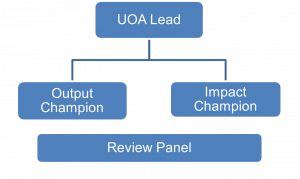



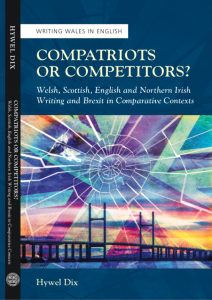
 Collaboration with Norway
Collaboration with Norway I the meantime, on Thursday 10 November UK has signed major science co-operation agreement with Switzerland.
I the meantime, on Thursday 10 November UK has signed major science co-operation agreement with Switzerland.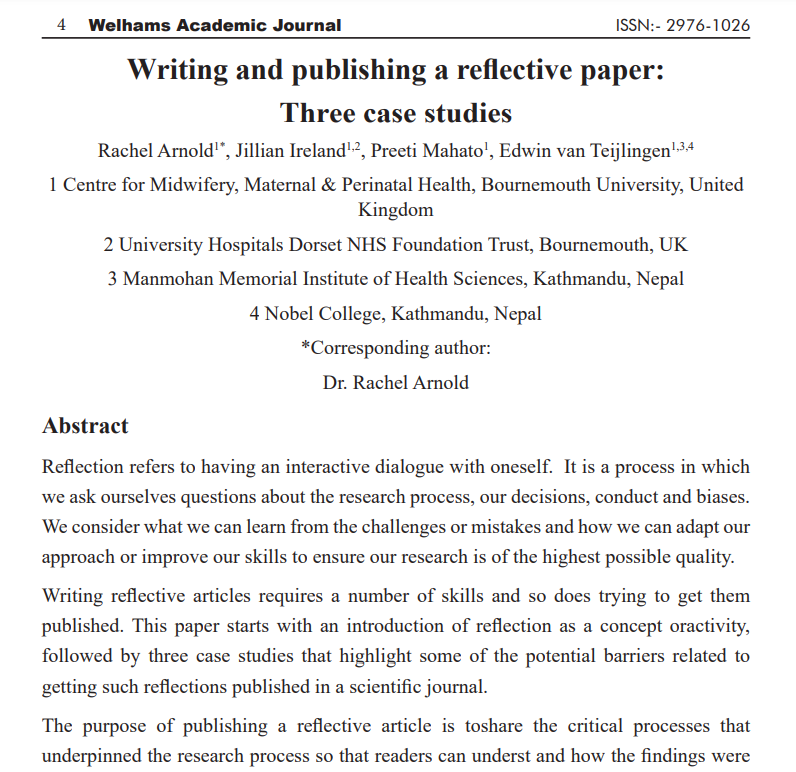


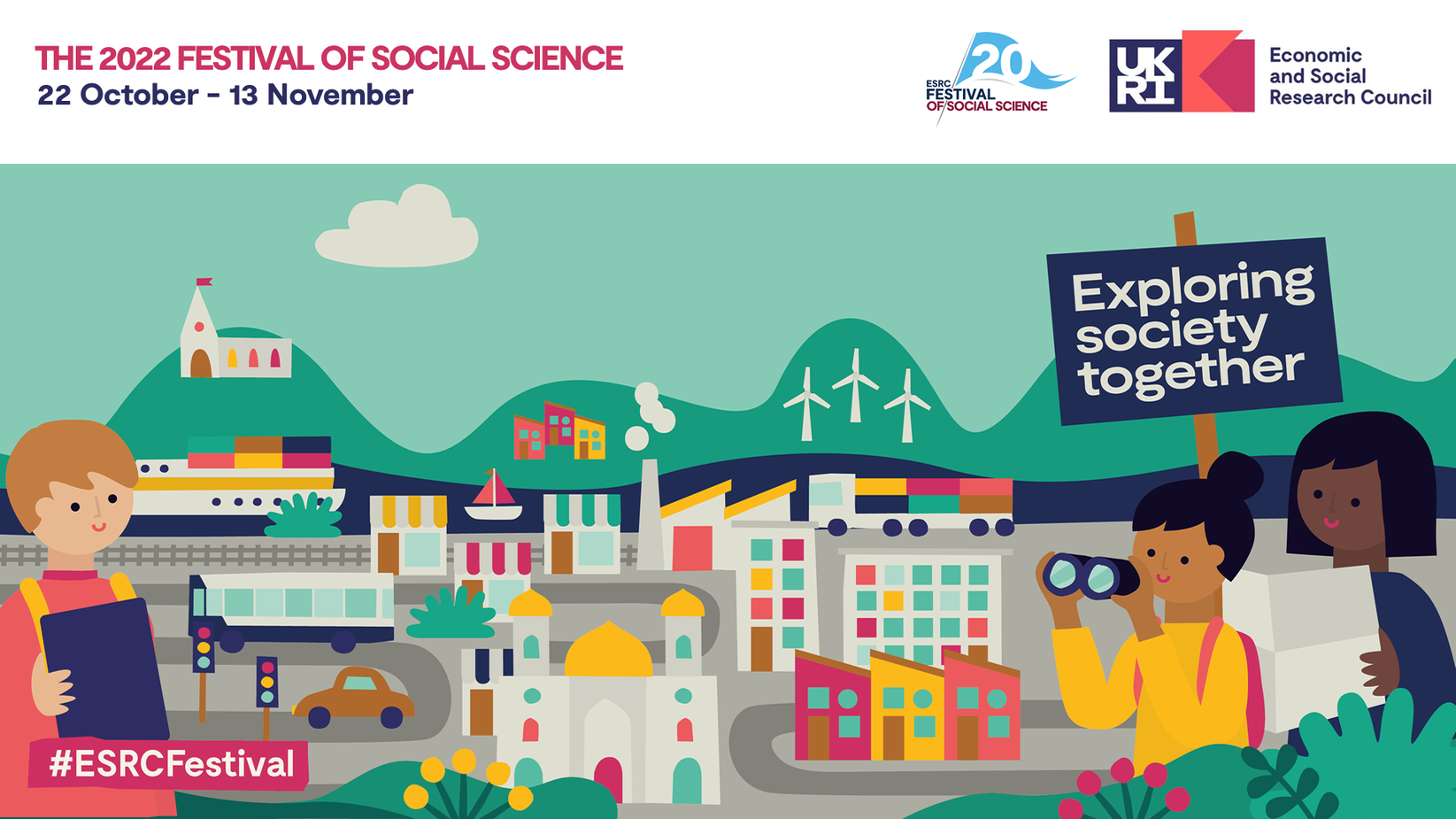
 About ten days ago I published a blog regarding
About ten days ago I published a blog regarding 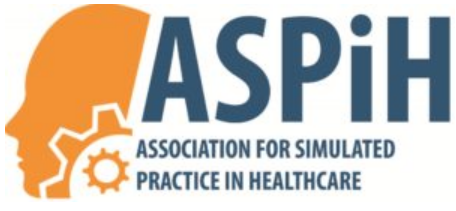
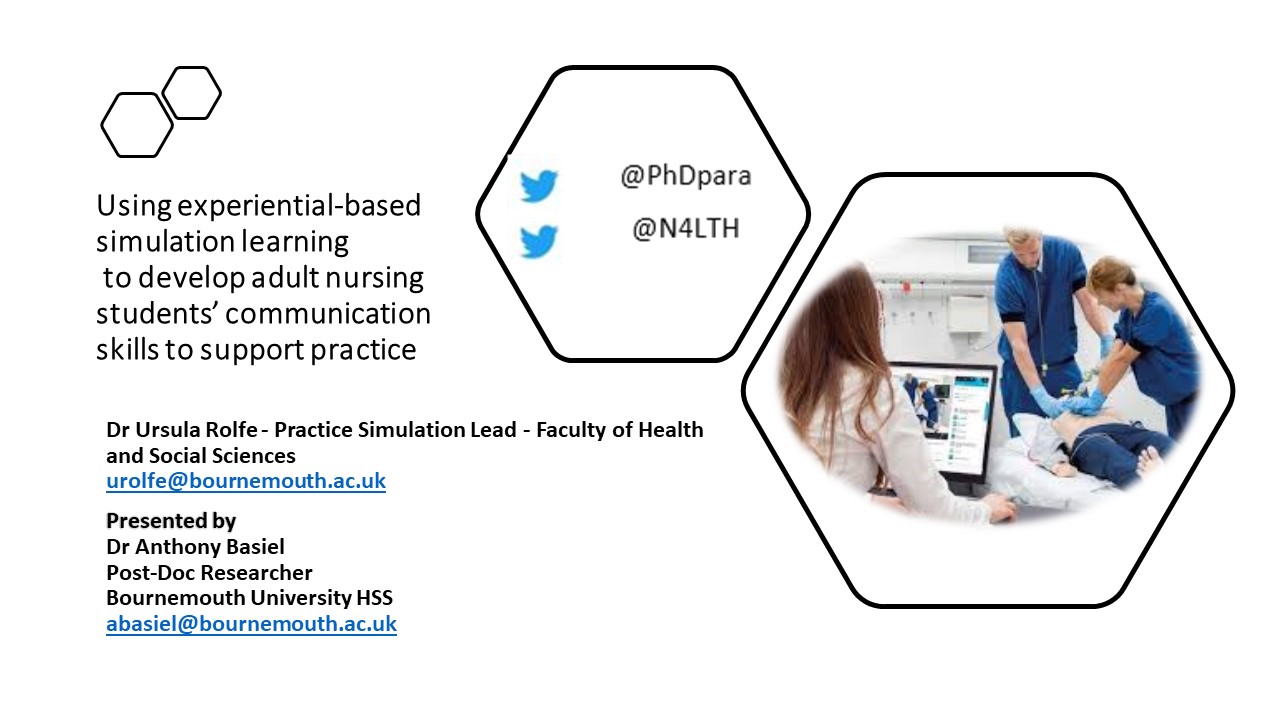
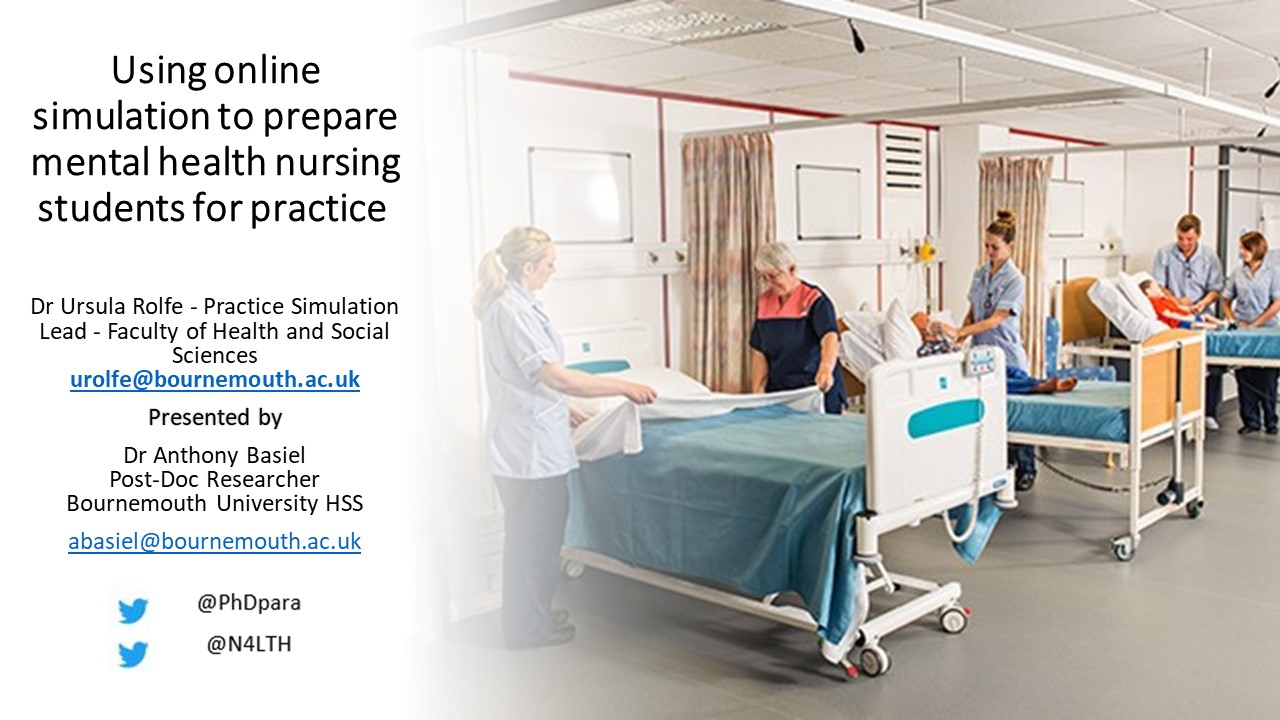
 What are Funding Development Briefings?
What are Funding Development Briefings? The
The 












 BU Leads AI-Driven Work Package in EU Horizon SUSHEAS Project
BU Leads AI-Driven Work Package in EU Horizon SUSHEAS Project Evidence Synthesis Centre open at Kathmandu University
Evidence Synthesis Centre open at Kathmandu University Expand Your Impact: Collaboration and Networking Workshops for Researchers
Expand Your Impact: Collaboration and Networking Workshops for Researchers Visiting Prof. Sujan Marahatta presenting at BU
Visiting Prof. Sujan Marahatta presenting at BU 3C Event: Research Culture, Community & Can you Guess Who? Thursday 26 March 1-2pm
3C Event: Research Culture, Community & Can you Guess Who? Thursday 26 March 1-2pm ECR Funding Open Call: Research Culture & Community Grant – Apply now
ECR Funding Open Call: Research Culture & Community Grant – Apply now ECR Funding Open Call: Research Culture & Community Grant – Application Deadline Friday 12 December
ECR Funding Open Call: Research Culture & Community Grant – Application Deadline Friday 12 December MSCA Postdoctoral Fellowships 2025 Call
MSCA Postdoctoral Fellowships 2025 Call ERC Advanced Grant 2025 Webinar
ERC Advanced Grant 2025 Webinar Update on UKRO services
Update on UKRO services European research project exploring use of ‘virtual twins’ to better manage metabolic associated fatty liver disease
European research project exploring use of ‘virtual twins’ to better manage metabolic associated fatty liver disease